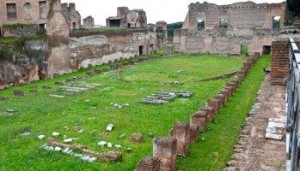The religious barriers will be broken down when God comes out of the box (Ark of the Covenant) and abides permanently with His people in Jerusalem. The Messiah, the Great Shepherd, will rule with grace and love and all nations will be gathered to Him. The hatred and  animosity that existed between all people will be no longer. Even the bitterness of Judah towards the Northern Kingdom of Israel will be resolved and the nation will gather together to enjoy their common inheritance. Jeremiah 3:18 says just that, “In those days the house of Judah shall join the house of Israel, and together they shall come from the land of the north to the land that I gave your fathers for a heritage.”
animosity that existed between all people will be no longer. Even the bitterness of Judah towards the Northern Kingdom of Israel will be resolved and the nation will gather together to enjoy their common inheritance. Jeremiah 3:18 says just that, “In those days the house of Judah shall join the house of Israel, and together they shall come from the land of the north to the land that I gave your fathers for a heritage.”
Huey observes that, “Jeremiah was not the only prophet who spoke of a future reunification” He argues that Isaiah, Ezekiel, Hosea, and Micah all prophesied a reunion of the Jews and a reoccupation of the Promised Land. (See, Isa 11:12–13; Ezek 37:16–23; Hos 3:5; Mic 2:12).[1] Many scholars see what began in 1948, the establishment of a new Israeli Nation, the beginning of the fulfillment of these prophecies. Jensen says, “Six centuries after Jeremiah delivered this promise of God to Judah and Israel, Paul was inspired to expand the truth in Romans 11, and practically two millennia later the prophecy of the regathering to Palestine has begun its fulfillment.”[2]
The uniting of the two kingdoms is symbolic of uniting enemies. In 931 BC the Northern Kingdom split from David’s line of rulers and established their own capital in Samaria. This is the beginning of the Jewish—Samaritan schism. When Nehemiah brought the remnant back to rebuild the city, the Samaritans that lived in the land wanted to join with them, but the Jews would not allow them to have any part. The rebuilding of the walls around the city illustrated the Jew’s hatred for the Samaritans. The Samaritans worked hard to prevent them from finishing the work. When Herod began to rebuild the temple for the Jews, a Samaritan raiding party dug up a cemetery and scattered corpses all over the spot where the Holy of Holies would be in order to defile the place. By Jesus day, the Samaritans were outcasts, hated by the Jews. All the hatred and bitterness over thousands of years will be resolved through the presence of the Messiah. To Him every knee will bow and every tongue will confess that He is the Lord of Heaven and Earth. Peace will finally reign supreme in Jerusalem. Zechariah describes Jerusalem as being a city without walls. Guzik observes, “Today Jerusalem is indeed a city without walls, because in modern warfare they are useless in defending the city. Ultimately Jerusalem will be a city without walls because the prince of peace will reign from Jerusalem and He will be her protection.”[3]
[1] F. B. Huey, Jeremiah, Lamentations, vol. 16, The New American Commentary (Nashville: Broadman & Holman Publishers, 1993), 76.
[2] Irving L. Jensen, Jermiah and Lamentations, Everyman’s Bible Commentary (Chicago, IL: Moody Press, 1974), 28.
[3] David Guzik, Zechariah, David Guzik’s Commentaries on the Bible (Santa Barbara, CA: David Guzik, 2013), Zec 2:1–5.